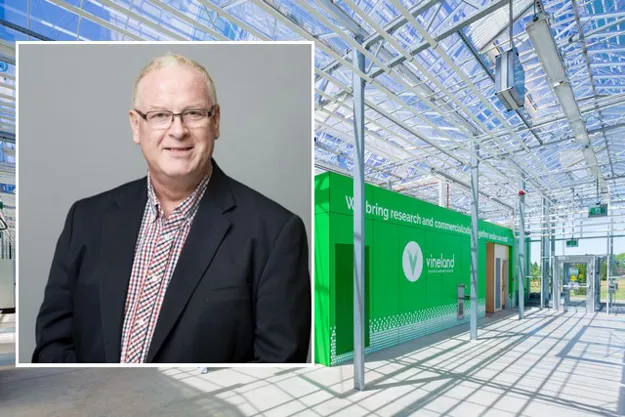"Being able to predict what the future holds would be an amazing skill to have, although obviously, impossible to achieve. However, it is possible to try to steer towards a desired future by understanding
the pressures on a sector and defining the possible system interfaces and our responses to them", Ian Potter, President & CEO of Vineland Research & Innovation Centre, writes in the newly launched Vineland Innovation Report.

"In Vineland's work with the Canadian horticultural sector, we seek not only to define and address today's challenges and opportunities but also to discern and tackle the unknown questions the sector may face in the next 5, 10, 15, and even 20 years. As we think longer term, the level of uncertainty is increasing. However, horticulture in Canada today is strong because of the strategic thinking and decisions made by the sector stakeholders decades ago."
"As a core delivery agent for horticultural innovation in Canada, Vineland has honed our sector-specific strategic planning skills by carefully targeting the areas where our stakeholders and we believe
positive impacts and outcomes can result. These skills utilize Vineland's core scientific and technical capabilities and also embrace a wider perspective of the future of Canadian horticulture, such as:
- Understanding how Canadian consumer demands will change over the next few decades.
- The global economy, food security, and supply are now and will become even stronger controlling factors.
- The need for enhanced Canadian-specific crop varieties to address changing growing seasons in widely variable environments and weather conditions.
- Disease and pest pressures and the required responses as they are constantly evolving.
- Supply chains require to be more robust and able to accommodate perturbations in the chain/system without failing.
- The toolkit of skills and equipment being proposed in helping companies and the sector's growth is forever increasing but existing horticultural practices and the introduction of new tools have to be carefully judged and validated to be fit for purpose.
- Labour availability and additional skill requirements in all aspects of the sector will be a dominating business pressure.
"I believe that the future for horticulture in Canada is robust and, in some respects, at the cusp of even greater outcomes and impact on supporting the lives and wellbeing of all Canadians. There will always be challenges to overcome, both daily and on a longer term, but the sector has historically learned to adapt and re-invent itself, and the future will be no different", Ian concludes.
"I'm proud to be part of the Vineland team that has a mission focused on the very sector we serve by improving the economic viability, sustainability, and competitiveness of horticulture in Canada. Yes, a lofty mission and one that has steered Vineland for over a hundred years and will continue to serve us well into the future."

 Vineland Research
Vineland Research